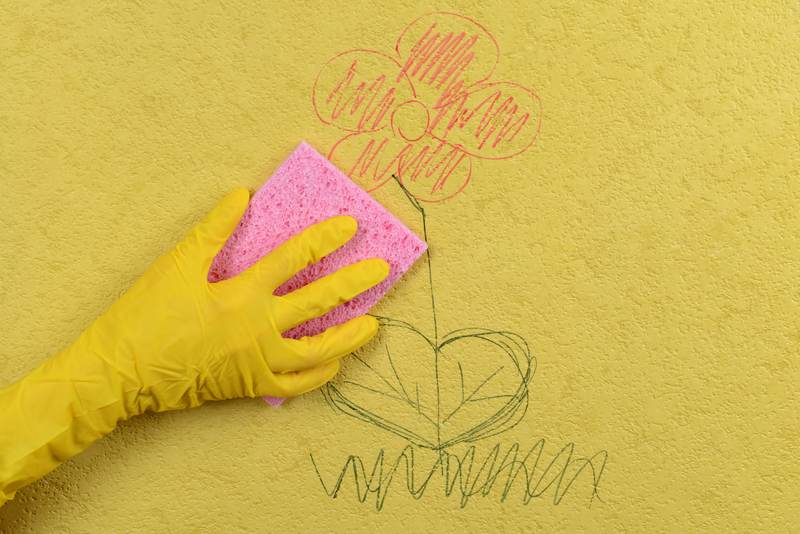Aluminium Cookware: Cleaning Guide
Posted on 26/08/2024
Aluminium cookware has long been a staple in kitchens around the world due to its excellent heat conductivity, lightweight nature, and affordability. However, keeping these utensils in pristine condition requires some specific cleaning strategies. This guide will provide detailed instructions on how to clean aluminium cookware and maintain it for years to come.
Why Cleaning Aluminium Cookware is Important
Proper cleaning and maintenance of aluminium cookware are crucial for several reasons. First, it helps preserve the cookware's efficiency in heat distribution, which is vital for achieving the best cooking results. Secondly, it extends the lifespan of the cookware, saving you money in the long run. Lastly, regular cleaning prevents the buildup of harmful residues that could impact your health.

Basic Cleaning Techniques
1. Use Warm Soapy Water: For everyday cleaning, fill your sink with warm water and a few drops of mild dish soap. Submerge the cookware and let it soak for a few minutes. Use a soft sponge or cloth to scrub the interior and exterior surfaces gently. Rinse thoroughly with warm water and dry immediately with a soft towel.
2. Avoid Abrasive Cleaners: Abrasive sponges or cleaners can scratch and damage aluminium cookware. Instead, opt for non-abrasive sponges and soft cloths.
Removing Stubborn Stains
1. Baking Soda and Vinegar: Create a paste using baking soda and water. Apply it to stubborn stains and let it sit for about 15 minutes. Scrub gently with a soft cloth. For tougher stains, try a mixture of equal parts vinegar and water. Bring it to a boil in the saucepan and let it simmer for about 10 minutes before rinsing thoroughly.
2. Cream of Tartar: Mix one tablespoon of cream of tartar with one quart of water. Bring the mixture to a boil in the stained pot, then let it cool. Scrub gently before rinsing.
Dealing with Discoloration
Discoloration is common in aluminium cookware due to the reactions between aluminium and acidic foods.
1. Lemon Juice: Cut a lemon into halves and rub the cut sides all over the discolored areas. Rinse with warm water and dry with a towel.
2. White Vinegar: Fill the cookware with a mixture of half vinegar and half water. Let it sit for an hour before rinsing thoroughly and drying.
Preventing Damage
1. Avoid High Heat: Aluminium cookware is highly conductive and can distribute heat rapidly. Cooking on high heat can cause warping and damage. Stick to medium or low heat settings.
2. Store Properly: Store your aluminium cookware in a dry place to prevent moisture buildup, which can lead to corrosion.
Tips for Maintaining Aluminium Cookware
1. Season Regularly: Season your aluminium cookware regularly to maintain its non-stick properties. Apply a thin layer of cooking oil and heat it over low heat for a few minutes before wiping off any excess.
2. Use Wooden or Silicone Utensils: Metal utensils can scratch and damage the surface. Opt for wooden or silicone utensils to prolong the life of your cookware.
3. Dry Immediately After Washing: To prevent water spots or oxidation, always dry your aluminium cookware immediately after washing.
Pros and Cons of Aluminium Cookware
Pros:
- Excellent heat conductivity
- Lightweight and easy to handle
- Affordable compared to other materials
Cons:
- Can react with acidic foods
- Prone to scratching and discoloration
- Not dishwasher safe

Takeaways
- Regular cleaning with warm soapy water is essential.
- Use non-abrasive sponges and cloths to avoid scratching.
- Employ baking soda, vinegar, and lemon juice to tackle stubborn stains and discoloration.
- Avoid high heat and improper storage to extend the longevity of your cookware.
- Season your cookware and use appropriate utensils to maintain its quality.
Conclusion
Maintaining aluminium cookware requires specific cleaning and care techniques to ensure it remains effective and long-lasting. By following the methods and tips outlined in this guide, you can keep your aluminium cookware in top condition and continue to enjoy its many benefits. Remember, the right care not only extends the life of your cookware but also enhances your cooking experience.









